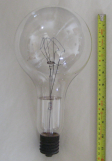Welcome to Carbon CO2nscience
Is your conscience clear regarding CO2 emissions from your house and car?
Opinions are divided about whether there are going to be problems as the world starts to run out of oil. Current thinking is that the topping point - this is the point in time where oil extraction is at a maximum - could occur within the next five years. Optimists conclude that the topping point could be 30 years away, even with today's increasing demand for oil.
But all that's irrelevant.
Why? Because they are all missing the real problem. And that's global warming. Put bluntly, we simply cannot afford to burn anything like the quantity of oil available to us without damaging the planet irreversibly. So, we have two problems: shortage of oil and global warming: one has a short fuse; the other's even shorter.
However, it's becoming clear with rising oil prices that oil may be the one with the shorter fuse. Demand in China and India is increasing but unlike the Western world where punitive taxes more than double the actual cost of the fuel on the forecourt, governments in developing countries subsidise oil to make it affordable which just encourages continued use.
Some things are going to have to change because we cannot continue the way we are. The changes will need to be drastic as we cannot just stop using oil or oil-based products. We need to reduce the increase in the world's population. We need to switch from inefficient sources of meat (e.g. beef 8kg of grain to produce 1kg of meat) to more efficient sources (e.g. pork at 4kg of grain to 1kg of meat or chicken at 1.8kg per kg of meat) or even better, switch to vegetable protein. Some say that we should be vegetarian six days out of seven!
It's strange that there are lots of books on how we should reduce reliance on oil and start using alternative energy sources, but there are none (to my knowledge) that encourage us to continue the way we are.
News
 The UK Government has
phased out
conventional tungsten filament lightbulbs. The
aim was to
reduce the use of these bulbs in favour of compact high efficiency lamps. This was accomplished by the rather blunt instrument of simply
prohibiting manufacture or import. There are some exceptions, but they are for a specialist or limited market. High wattage lamps became unavailable in
from July 2008 onwards with 100W, 60W and 40W bulbs being withdrawn from 2009 onwards. Looks like I'll have to get out my Osram 1000W bulb to compensate!
The UK Government has
phased out
conventional tungsten filament lightbulbs. The
aim was to
reduce the use of these bulbs in favour of compact high efficiency lamps. This was accomplished by the rather blunt instrument of simply
prohibiting manufacture or import. There are some exceptions, but they are for a specialist or limited market. High wattage lamps became unavailable in
from July 2008 onwards with 100W, 60W and 40W bulbs being withdrawn from 2009 onwards. Looks like I'll have to get out my Osram 1000W bulb to compensate!
More on the light bulb debate...






